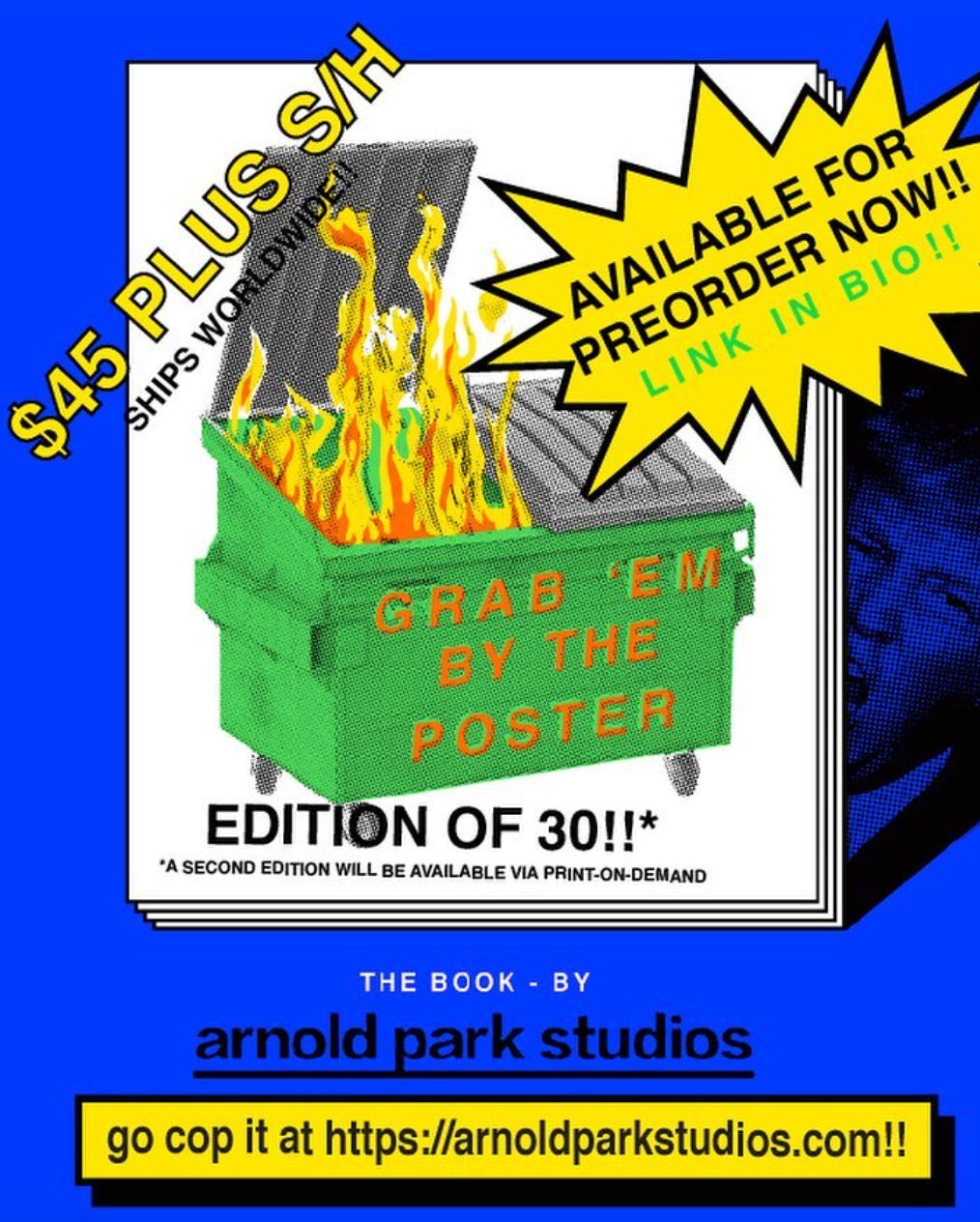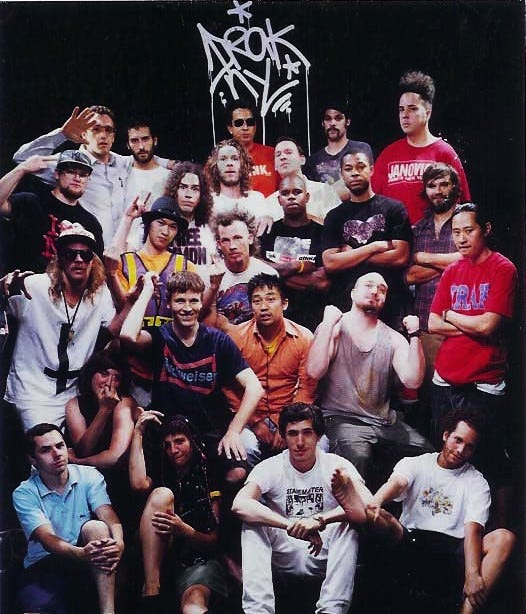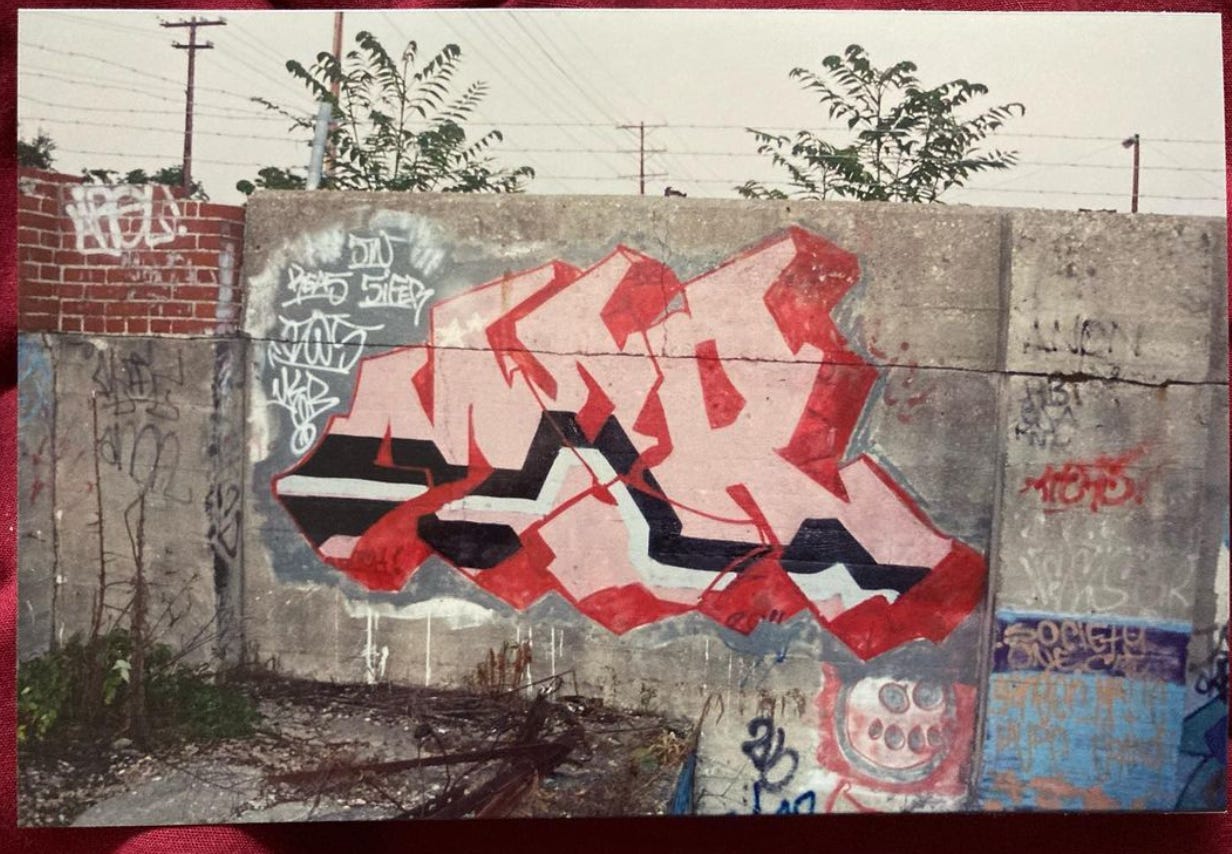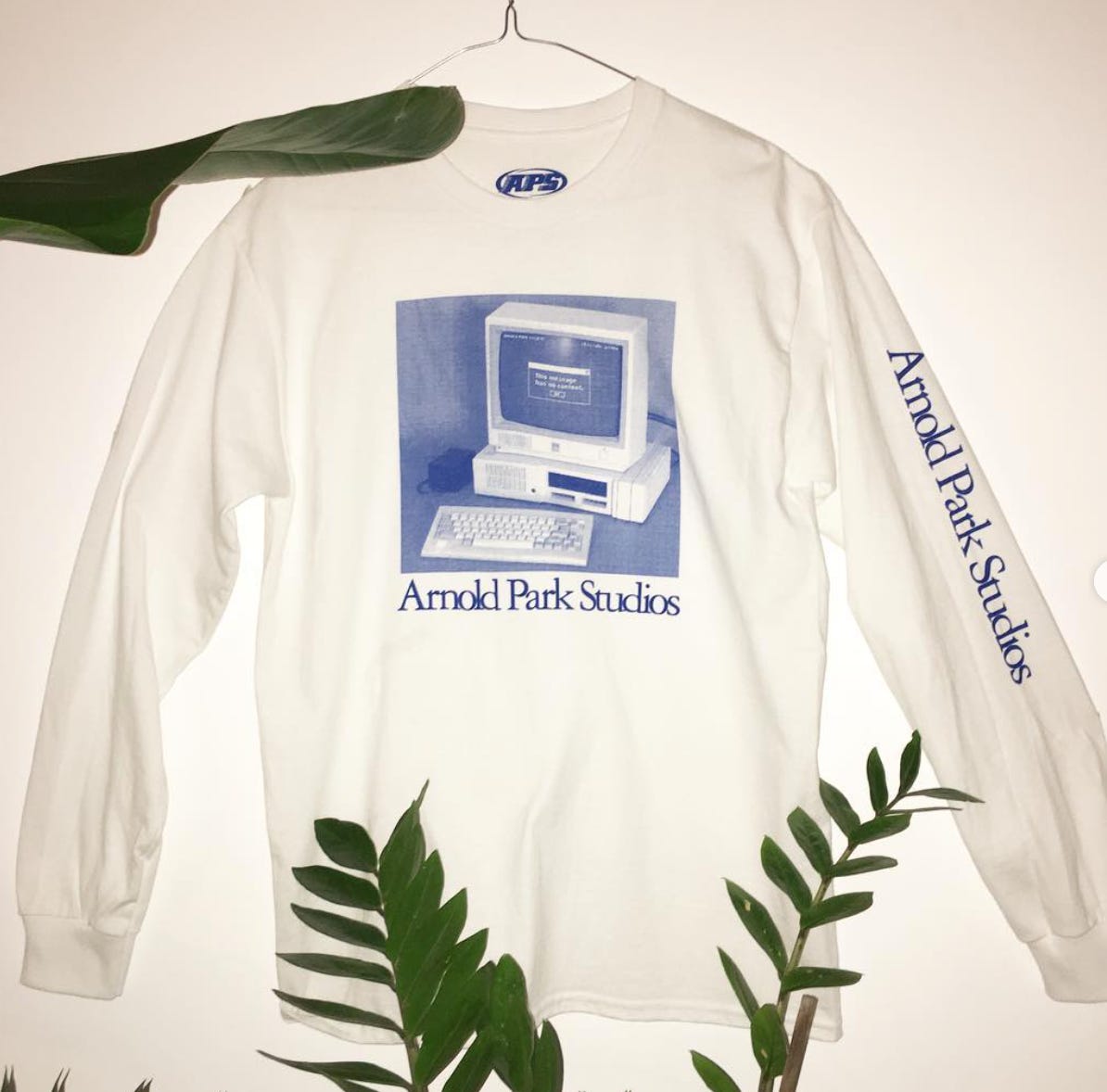We’re back with Andrew from APS! Scroll on down for Part 2 of my conversation with Andrew.
*The Start of APS*
Care Label: So Andy, to dive back in - I love an origin story, so how did APS start?
Andrew: “I had been dabbling for several years, trying to create work that was of the moment and of my interests. I struggled to find a starting point. It was early 2010s when the idea was germinating. I would do the occasional poster design and other things like that but it never really had a direction. Becoming a father really focuses your energies as you know you have less free time ahead of you. I started the project I mentioned before doing the Trump posters and that forced me to work and be forced me to develop a style. If you flip through the poster book, you can see where I was floundering a bit trying things on and then things started to cement and it eventually became a little more original to me.”

Care Label: And I know you spoke before about Graffitiing around Ohio. So how did graffiti influence APS?
Andrew: “I mean, graffiti for me that's just what switched my brain production on. I think I went from enjoying doodling to obsessively drawing letters. So it was a full-time obsession in my head. I realised pretty early that I wasn’t built like people who are successful in that scene and couldn’t justify having a criminal record! But, that's where I met a lot of the people who got me into the fashion industry.”
[Continued]: “There's also a graffiti-to-graphic design pipeline out there. There were a group called IRAK in New York, back in the early 2000s. For people of my generation, they were your Mount Rushmore of cool guys for that time. Those who made it out of the early 2000s alive formed various creative ventures, including some clothing brands as a result of the graffiti. That influenced how I thought about streetwear and I think so many stores in New York had direct connections to the Graffiti community.”
*From Columbus to Japan*
Care Label: Something else that really interests me is how brands keep it going. So how did APS go from a small operation at the start to then being stocked in stores around the world?
Andrew: “I had been starting to release small drops, dipping my toes in terms of creating some apparel. However, I had been working with an agency that represented Willy (Chavarria) in Japan. They'd seen the graphics I was doing for him and they inquired about whether I'd be interested in having APS represented in that market. I was like, ‘YEAH ABSOLUTELY’. So they ended up getting APS stocked in half a dozen stores, and then kind of slowly built on that. Over the seasons we've been working together.”
[Continued]: “I think that presence in Japan caught the eye of Garbstore and they inquired if I’d like to be stocked there. If you asked me to name five stores in the world to be stocked in, Garbstore were on that list. I used to look at their ‘New In’ obsessively, just as part of absorbing what's coming from other brands, so that was a huge one.”
*Rome wasn’t Built in a Day*
Andrew: “Having said all this, it’s all very incremental. I think something people misunderstand when they're first starting, is that they think there's this hockey stick moment. I mean, it can happen. It helps if you've got investor cash or a celebrity partner who's going to help elevate it. But as somebody who didn’t have that, it was just a matter of putting yourself in more situations for people to stumble upon you. I think people have to see you a couple of times before you exist in their minds. It’s that thing of ‘Oh, I've noticed this a couple of times now’. What's this all about?’ So I think it's a numbers game. I was lucky enough to know that success wasn’t immediately being stocked in all these stores. I think I’m most proud that I’ve not had to ring for help or take on a loan. It's growing on its own.”
*Be Water*
Care Label: What about something that you’ve gotten much better at since you started?
Andrew: “I think the two things. Firstly, flexibility and secondly, the ability to make myself do things that I don't want to do. There's a lot of stuff that I struggle with, taking time-sensitive matters seriously, for instance, and the brand has forced me to reckon with the fact there's no makeup time. There's no Plan B. You have the time you have - and if you don’t do things like organise your orders and figure out how many to make for next season, you're going to miss your deadlines.”
[Continued]: “And then in terms of flexibility, I think I started out being like, ‘Well, I'm doing this for me, and if it isn't going to be executed to my exact standards it’s not worth doing.’ I think what I've learned over time is to have some wiggle room in projects. I've been able to take advantage of more opportunities recently because I've developed that sense of, ‘let's see where this goes’. Whereas at the start there was stuff I was saying no to or things that I overcomplicated, but I should have said yes to.”
Care Label: I think when you're younger, you're more idealistic in your approach, not as flexible or malleable. I think for brands or anyone reading that, that’s pretty solid advice. It can be in any field though, not just creatively.
Andrew: “I think that’s what stops a lot of people from starting. It won't be exactly what you want it to be, and I think that comes from a sense of our ego and insecurity. What I've learned over time is, what people see is not what you see. They're not looking at that little detail that you got obsessed over.”
Care Label: And lastly some questions on success and advice. What did success mean when you started? Has that idea of success changed since you started?
Andrew: “Success has always meant keeping things going. But I'd be dishonest if I said that was my only idea of success. I definitely wanted to get some validation from certain sectors of brick-and-mortar retail. Where instead of having this perfect edited list of stores I want to be in, I'm now much more aware of taking a step back and thinking okay, well, could this store be good for me? Am I being too much of a purist about it?”
*Back your Taste*
Care Label: What advice would you give to someone starting off in this world now? Be it design, or starting a brand?
Andrew: “The advice I needed when I was younger is just saying, ‘get the fuck over yourself.’ I think that over-analysis of what people are thinking and what people might say, stopped me for so many years from actually releasing stuff. I think learning from an earlier age that no one is going to care as much as the people who make it. So rather than waiting until you've got the perfect idea or that all the conditions are correct. I think it's about starting imperfectly. But it’s also having faith in your own taste. That ability to talk yourself around and be strict with myself not to pander to what I think people want rather than what I want to see out in the world.”
Care Label: That’s so great. The backing in your own taste takes a lot of confidence, but you need to trust it, which is easier said than done!
Andrew: “It takes the magic away. It's about saying NO, this is perfect.”
Care Label: Amazing! Thanks Andy








